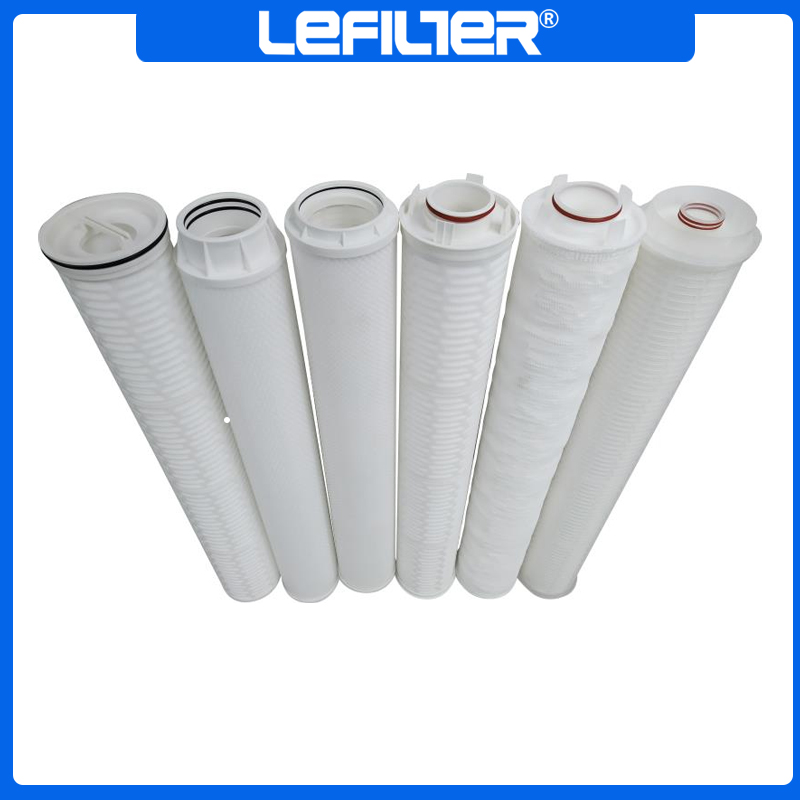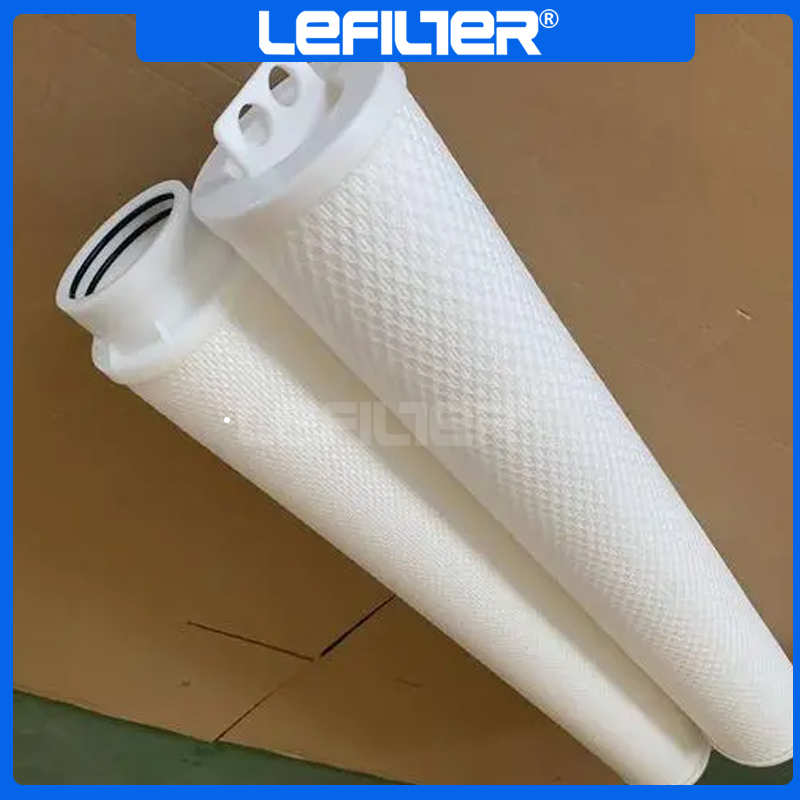Cartridge Filter Housing in Pharmaceutical Applications
DATE:2024-10-19 Number of views: 1 Source:dongwenhui
In the pharmaceutical industry, the quality and purity of products are of utmost importance. Contamination risks must be minimized at every stage of production, and one of the most crucial ways to achieve this is through filtration systems. Cartridge filter housings are widely used in various pharmaceutical processes, including the filtration of liquid drugs, air, and water. We explore the critical role of cartridge filter housings in ensuring safe and sterile pharmaceutical production and explain their importance in maintaining quality control.

Understanding Cartridge Filter Housings
A cartridge filter housing is a vessel designed to contain replaceable filter cartridges. These cartridges are tailored for specific filtration needs, such as removing particles, bacteria, and other contaminants from liquids or gases. In the pharmaceutical sector, these housings are integral to the filtration systems that maintain the sterility and purity of materials at different production stages.
Pharmaceutical applications of cartridge filter housings include filtration in liquid drug formulation, water treatment, solvent purification, and sterile air handling. Depending on the needs of the process, the cartridge material and design may vary, but they must adhere to stringent regulatory standards to ensure the integrity of the product.

Liquid Filtration in Drug Production
Pharmaceutical manufacturing often requires the filtration of liquid drugs or solutions to ensure that no particulate matter or microbial contamination enters the product. For example, intravenous (IV) solutions or injectable drugs must be free of any contaminants. Cartridge filter housings play a critical role here, allowing the liquid to pass through fine filter cartridges that remove even the smallest particles.
These filters are often composed of advanced materials like polyethersulfone (PES) or polyvinylidene fluoride (PVDF), which have excellent chemical compatibility and bacterial retention properties. Depending on the size of the particles to be removed, filters can have varying pore sizes, with some cartridges capable of filtering out particles as small as 0.1 microns. This level of filtration is essential for maintaining the sterility of injectable drugs and liquid formulations.

Air Filtration and Sterile Venting
The production of pharmaceuticals often occurs in highly controlled environments, such as cleanrooms, where air quality is crucial. Cartridge filter housings are commonly used in air filtration systems to ensure that clean air circulates through these sterile environments. Airborne contaminants, such as dust or bacteria, can significantly impact product quality and pose risks to patient safety if they make their way into pharmaceutical products.
Sterile vent filters, housed within cartridge filter systems, are used to filter air entering tanks and reactors during drug manufacturing. These filters prevent contaminants from entering the equipment during the sterilization and venting processes. High-efficiency filters, such as those made from polytetrafluoroethylene (PTFE), are often used for this purpose due to their high bacterial retention and chemical resistance.

Water Purification and Process Water Treatment
Water is a vital component in pharmaceutical manufacturing, used not only in drug formulations but also in rinsing, cleaning, and cooling processes. The quality of water must be strictly controlled to avoid contamination, and this is where cartridge filter housings come into play. Various water purification methods, such as reverse osmosis (RO) or ultrafiltration, often involve cartridge filters to remove bacteria, particulates, and other impurities.
Cartridge filters in water purification systems ensure that the water meets the necessary standards for use in pharmaceutical applications. Whether it's water for injection (WFI) or purified water, the use of fine filtration ensures that waterborne pathogens or particulates do not compromise the safety or effectiveness of pharmaceutical products.

Solvent Filtration
Solvents play a major role in the pharmaceutical industry, especially in the production of Active Pharmaceutical Ingredients (APIs). However, solvents need to be purified to prevent impurities from affecting the chemical reactions and the quality of the final product. Cartridge filter housings are essential in filtering solvents to remove fine particulates, ensuring that the pharmaceutical processes remain clean and efficient.
The material used in the filter cartridges is often selected based on the chemical properties of the solvent being filtered. In many cases, polypropylene or stainless steel cartridges are used due to their chemical resistance and durability.

Compliance with Regulatory Standards
Pharmaceutical companies must comply with strict regulatory guidelines to ensure product safety. Cartridge filter housings, along with the filters they hold, must meet the required standards to ensure that filtration processes are effective in removing contaminants. In many cases, filter systems must be validated for their bacterial retention efficiency, and the materials used must be certified safe for use in pharmaceutical environments.
Regulatory bodies, such as the Food and Drug Administration (FDA) and the United States Pharmacopeia (USP), have specific requirements for filtration in pharmaceutical manufacturing. Filters used in cartridge housings are often tested according to these standards to ensure they provide reliable and effective filtration for liquid drugs, air, and water.

Maintenance and Replacement
Cartridge filters are designed for periodic replacement, ensuring that the filtration system remains effective over time. Proper maintenance of the cartridge filter housing is crucial to avoid contamination build-up and system inefficiency. Depending on the application, filter cartridges may need to be replaced after a certain number of operating hours or when pressure drops indicate that the filter is clogged with contaminants.
Filter housing systems are often designed to make cartridge replacement easy and safe, minimizing downtime and ensuring that the filtration process continues without interruption.

Conclusion
Cartridge filter housings are indispensable in the pharmaceutical industry. They ensure the purity, safety, and quality of pharmaceutical products by removing contaminants from liquids, gases, and water used in production processes. From sterile air filtration in cleanrooms to solvent and liquid drug filtration, these systems play a pivotal role in maintaining compliance with strict regulatory standards and protecting patients from potential contamination.
FAQ
What is a cartridge filter housing?
A cartridge filter housing is a container that holds one or more filter cartridges to remove contaminants from liquids or gases during filtration processes.Why are cartridge filters important in pharmaceutical production?
They ensure that products, whether liquids, gases, or water, are free from particulate matter and microbial contamination, which is crucial for patient safety.What types of materials are used for filter cartridges in pharmaceutical applications?
Common materials include polypropylene, PTFE, PES, and stainless steel, chosen based on their chemical compatibility and filtration requirements.How often should cartridge filters be replaced in pharmaceutical applications?
Cartridge filters should be replaced regularly, typically based on pressure drop measurements or after a set number of operating hours.What role do cartridge filters play in water purification for pharmaceuticals?
They remove impurities, bacteria, and particulates from water used in drug formulation, rinsing, and cooling processes.Are cartridge filters used in sterile air filtration?
Yes, they are commonly used in cleanroom environments to ensure that air entering sterile production areas is free of contaminants.How do cartridge filters ensure compliance with regulatory standards?
They are tested for bacterial retention and certified according to FDA and USP guidelines to ensure safety and effectiveness.Can cartridge filters be used for solvent filtration in pharmaceutical manufacturing?
Yes, they are essential for removing impurities from solvents used in API production, ensuring the purity and quality of the final product.
Industry Solutions
Pure Water /Ultra Pure Water System


